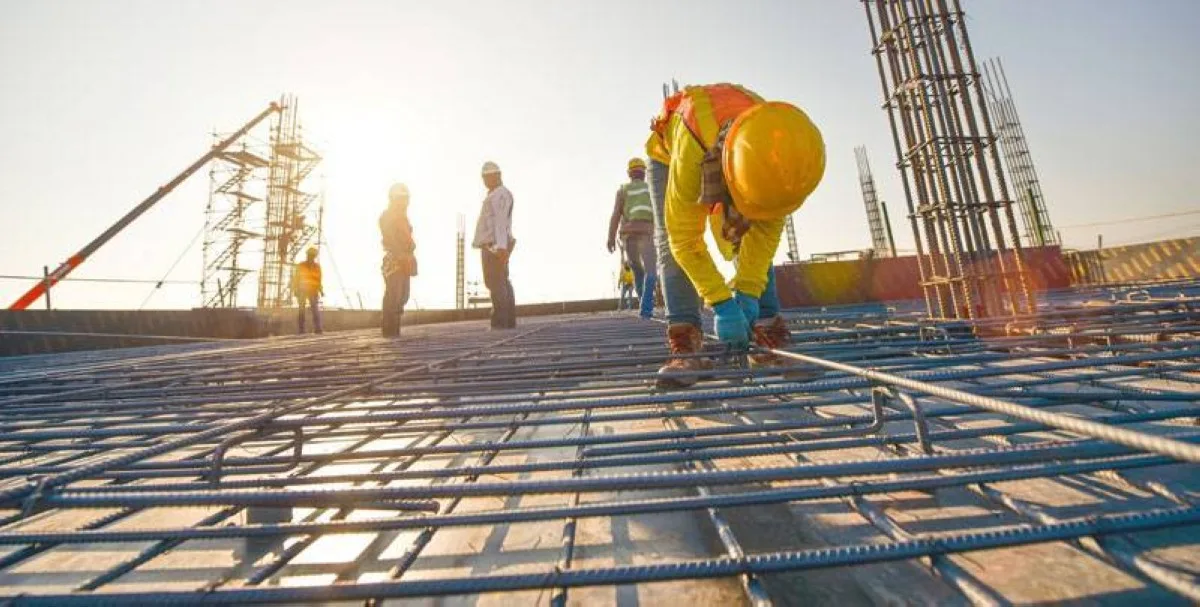12/09/2024
12/09/2024

KUWAIT CITY, Sept 12: In a notable shift, local banks in Kuwait significantly reduced their financing for the construction sector in July 2024. The total funding plummeted by 219.9 million dinars, marking a dramatic 60 percent decrease from the 368.6 million dinars allocated in June 2024. This decline follows a similar downward trend observed annually, where July 2024’s financing of 148.7 million dinars was 39 percent lower than the 187.6 million dinars provided in July 2023. Despite this drop, there was a slight increase in the accumulated balance of construction financing. From June to July 2024, the balance grew by 1.3 percent, climbing from 2.910 billion dinars to 2.948 billion dinars.
Yearly, this balance saw a substantial rise of 22 percent, up from 2.415 billion dinars in July 2023 to 2.948 billion dinars. Throughout 2023, the overall financing provided by local banks to the construction sector increased by 0.7 percent, rising from 1.740 billion dinars in 2022 to 1.754 billion dinars. However, the sector experienced significant fluctuations in financing levels over the year. The figures varied from 112.8 million dinars in December 2022 to peaks of 222.6 million dinars in October 2023, with notable rises and falls throughout the months. The Kuwaiti construction sector is grappling with several challenges. The past five years have seen a decline in initiating and awarding new projects, alongside delays in contractor payments.
Moreover, construction costs have surged due to labor shortages, which have driven wages to unprecedented levels. This issue is compounded by the exodus of experienced workers following the COVID-19 pandemic, leaving the sector struggling with both a shortage in quantity and quality of labor. The real estate experts highlight that the labor shortage is not merely a matter of numbers but also involves a lack of skilled workers. The rise in daily wages, driven by high demand and low supply, has further strained the sector, affecting the cost and progress of construction projects. As the sector navigates these challenges, the fluctuations in financing and the ongoing issues with labor and project delays continue to impact the overall stability and growth of the construction industry in Kuwait
Consumer loans
Data from the Central Bank of Kuwait has unveiled a notable increase in consumer loans and deposits during the first seven months of 2024. The consumer loans granted saw a rise of 59 million dinars, or 3 percent, reaching a total of 2.03 billion dinars by the end of July, compared to 1.97 billion dinars at the end of December 2023. Overall, Kuwaiti banks granted 1.82 billion dinars in loans during this period, marking a 3.4 percent increase. Consequently, the total credit extended in the country grew to 55.37 billion dinars by the end of July 2024, up from 53.55 billion dinars at the close of December 2023.
The rise in loan volumes aligns with broader credit growth across various economic sectors. Housing loans, which are long-term personal loans for purchasing, building, or renovating private residences, increased to 16.24 billion dinars by the end of July. This represents a 230 million dinars rise, or 1.42 percent, from the 16.01 billion dinars recorded at the end of December 2023. Personal facilities also grew, reaching 19.01 billion dinars by the end of July, up by 250 million dinars or 1.35 percent, from the 18.76 billion dinars at the end of last year.
Loans directed towards purchasing securities saw a 3.5 percent increase during the first seven months of 2024, rising to 3.62 billion dinars by July, compared to 3.5 billion dinars at the end of December 2023. This translates to an additional 120 million dinars. In terms of deposits, the Central Bank reported an increase in bank deposits to 49.48 billion dinars by July 2024, up from 48.72 billion dinars at the end of 2023. This represents an increase of 755 million dinars, or 1.55 percent. The data highlights a positive trend in both lending and savings, reflecting growth in Kuwait’s financial sector amid broader economic activities
By Mahmoud Shinde
Al-Seyassah/Arab Times Staff


